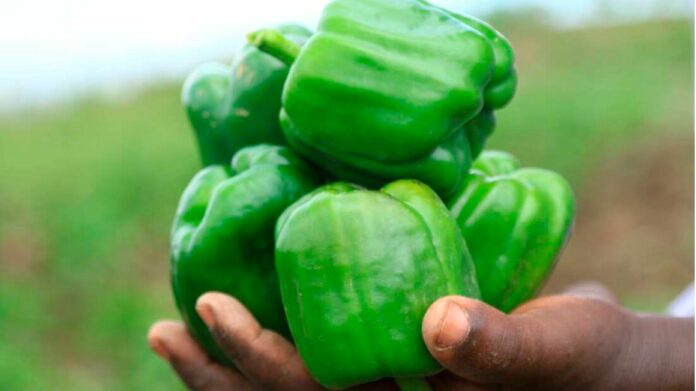For Samuel Magumba, farming has always been an integral part of his life. In his childhood days, Magumba would always spend time playing on their family’s farm.
With this, he developed an appreciation for the potential rewards that lay with the soil underneath his feet.
Growing up, it is not a surprise that he was instinctively drawn to joining Kenya’s renowned agricultural 4K club.(Kuungana, Kufanya, Kusaidia Kenya)
“For me, the love for farming started way back in school when I enrolled as a member of the 4K Club. Today I am reaping the fruits of a passion that i developed a long time ago,” he said in a past interview.
Indeed, years have passed, and now, Samuel Magumba is one of the largest capsicum farmers in Kenya, from the Taita Taveta region.
The farmer earns millions of shillings solely from pilipili hoho (capsicum) in the multiple farms he owns and leases out in Taveta. In a harvest season, Samuel Magumba can make as much as Sh. 500,000 from an acre filled with the produce.
Additionally, he is also a tomato and cucumber farmer. However, he finds the beloved Kenyan food seasoning ingredient (capsicums) to be his holy grail.
As a widely sought capsicum farmer, Magumba credits his vast farming success and intellect to his father who taught him farming from a young age.
His father hails from Western Kenya, but moved the family to Taita Taveta in the 80s and never turned back, owing to the rich fertile soils in the area.
Growing Capsicums
Magumba has planted capsicums on over 5 acres of land. As previously mentioned, he earns at least Sh. 500,000 per acre.
Generally, capsicums’ productive period on the farm lasts for around 6 months. However, with good agricultural practices, Magumba has extended his productive period to 8 months.
He has employed at least 27 people on his farms. For each farmhand, he pays them a monthly stipend of Sh. 7,500.
“I provide them with food and accommodation then pay them Sh. 7,500 per month,” he stated.
How 23-year-old makes Sh. 360,000 monthly from tomato, capsicum farming
Marketing Strategy
With capsicums, there is always a ready market in the coastal regions and even in Nairobi. Transportation constraints factored into the equation mean that Magumba prefers the Mombasa, Kongowea market.
To facilitate sales and connect with customers, he relies on brokers. He cedes 10% of the total revenue obtained to brokers.
“I share my profit with brokers to whom I give 10% of the total income that I make per trip, but the returns are still good even with the deductions,” Magumba revealed.
In the past, he would hire trucks to ferry his produce from the Taveta farms to Mombasa, which would cost him Sh. 30,000. Having minted fortunes continuously, he was able to purchase his own truck for transportation.
Magumba advises potential farmers to take the steps diligently as the rich lands of Kenya hold great potential.
He adds that to be successful, one would need to get everything right by following the necessary procedures and practices in agriculture.









